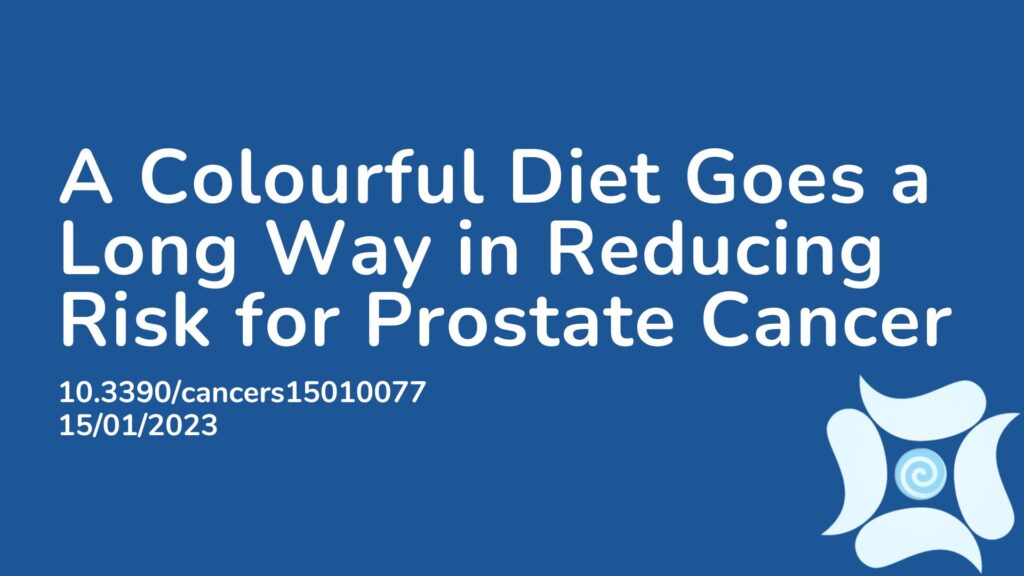Summary:
Prostate cancer is one of the most common cancers in men and is unfortunately increasingly fatal. This paper looked at whether nutrient status, including both deficiencies and excesses, are associated with the onset of prostate cancer. This paper used a population of men with prostate cancer and compared them to a healthy control group without prostate cancer. The researchers found that when concentrations of certain nutrients or anti-oxidants such as lutein, lycopene, beta-carotene and selenium were reduced, prostate cancer was more present. The results also showed that prostate cancer was more present in cases of high iron, sulphur and calcium. These findings indicate that a diverse diet, rich in a variety of anti-oxidant rich and colourful food, may reduce the likelihood of developing prostate cancer.
Abstract:
Emerging evidence suggests possible roles of micronutrients in cancer prevention. The study was designed to test the hypothesis that the concentration profile of plasma micronutrients (i.e., the nutriome) in prostate cancer patients is different from that of healthy controls. Plasma samples from 116 Caucasian men diagnosed with late onset of prostate cancer and 132 matched controls from the South Australian population were collected and analysed for their concentration of micronutrients. Plasma concentrations of lutein, lycopene, α-carotene and β-carotene were found to be significantly lower in prostate cancer patients (p = 0.03, 0.008, 0.002 and 0.002, respectively). Plasma levels of elements such as iron, copper, calcium and sulphur were significantly higher (p < 0.0001, <0.0001, <0.0001 and p = 0.0003, respectively) while that of selenium was significantly lower (p = 0.002) in prostate cancer patients. Higher prostate cancer risk is significantly associated with plasma levels below the median of lycopene (OR: 2.24), α-carotene (OR: 2.13), β-carotene (OR: 1.97) and high levels above the median of iron (OR: 2.31), calcium (OR: 4.35) and sulphur (OR: 2.39). The results of this study suggest that the plasma nutriome could be a useful diagnostic of prostate cancer risk.
Article Publication Date: 15/01/2023
DOI: 10.3390/cancers15010077



